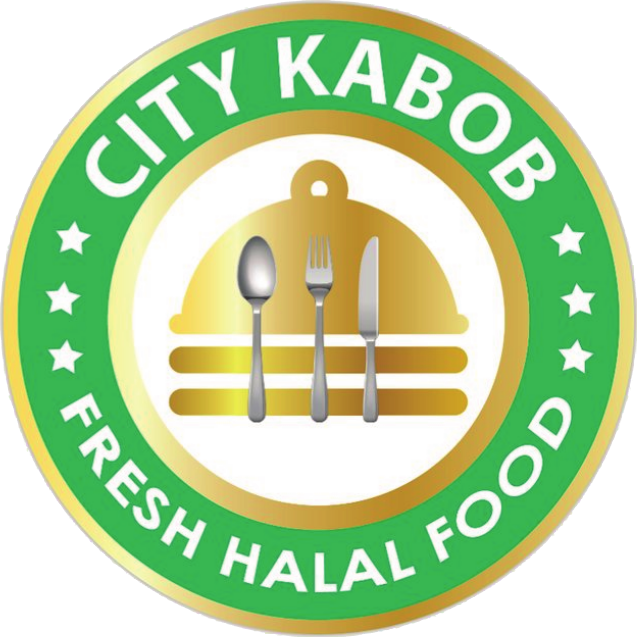Content
- What Is CRM? The Ultimate Guide (
- What do people mean when they say CRM?
- Try out Sales Cloud free for 30 days to convert more leads and close more deals.
- Why do companies use customer relationship management software?
- Make great customer relationships an everyday reality.
- CRM for Enterprise companies
- What is the meaning of CRM?
Many CRM software offer free versions or trials you can use to test the top CRM choice list you put together in Step 6. Sign up for these trials or free versions and let a sampling of your team members across all relevant business functions use the respective CRMs. Gather feedback on the user experience reported by your team members, then make a choice based on that feedback. For example, your sales representative sold a customer a hot tub. In that interaction, your team member learned that the customer prefers to interact with your company via text and notes this in your CRM. It can also help you establish a workflow or process to follow.
- Cloud-based CRMs, like Salesforce, combine the power of a CRM with the revolutionary convenience of cloud computing.
- With your and your team’s goals and desired features in hand, choose a CRM type.
- Design-wise, it’s also pretty aesthetically pleasing, so there’s that.
- Copper has competitive pricing that will work for most small businesses.
Here we discuss anything that helps create more meaningful lasting work relationships. At Tesla, Airtable is the primary engine for identifying and tracking vehicles leaving its factories. News magazineTimeuses it to organize all of its production schedules. https://xcritical.com/ Nontraditional CRMs are gaining ground by catering to needs niche and holistic alike. That includes everything from nurturing collaboration across your team to managing freelance contracts, streamlining workflow, and sparking inspiration.
What Is CRM? The Ultimate Guide (
Deals, Companies, Support, Tasks, Contacts, and Pipelines are all readily accessible from this dashboard, directly inside your inbox. A sidebar dashboard on the right side of the inbox gives more information, including company and customer profile details. Full email sync ensures you can view messages from whatever email service you use in-app. Meanwhile, thePersonasfeature can help you dig deep to understand the mindsets of different customer strata, then segment them for better marketing strategy. Agile CRMfeatures a Helpdesk that segments customers according to individual history, matching them to the rep most qualified to tackle their specific issue.
Afree CRMaffords you the opportunity to try out new tools without making any initial investment. You may also be pleased to note the developer also holds on to some lofty social goals of community, diversity, and inclusivity. To get vTiger up and running and implement it successfully, you’ll be needing a hosting account and someone with some technical skills. As you scale up your app usage, you’ll likely want to check out the marketplace for add-ons. If you’re running your working life with Microsoft products, there’s alwaysSplendidCRM.

The developers behind Splendid deduced that Microsoft’s own CRM, Microsoft Dynamics, can come off as somewhat complex and daunting. Integrations with Zendesk, MailChimp, and many other well-liked apps round out the package. Calendar sync ensures that CRM data on events, task assignments, and deadlines are automatically shared to your phone so you receive alerts. Your Hootsuite dashboard can be customized and made more CRM-ready with app extensions that link it to Nimble, Microsoft Dynamics, Salesforce, and more. You can find these extensions and more on the Hootsuite app directory.
What do people mean when they say CRM?
Likewise, sales reps can automate customer data entry and interaction history, then use the insights to nurture leads via preferred channels. Operational CRMs automate processes, freeing your team to focus on their expertise. Analytical CRMs gather, store and analyze data so you can act on trends to improve customer experiences and, therefore, boost conversions.
It allows you to create multiple pipelines customizable to your business needs, with a highly visual design that provides a clear overview of all activity and prioritize the most important sales activities. Sales force automation rationalizes your workflow by sorting information across channels, generating new data and tasks, notifying you on follow-ups, order processing, and tracking, and all things telephone related. Making phone calls within your CRM platform automatically generates data in real time, the date, who made the call, and so much more. You’ll be able to automatically track old and new customers and schedule follow-ups, with a centralized base for contact information. Keeping track of all that data makes task automation one of the most significant advantages provided by today’s CRM platform.
Pipeline CRM is the best for small businesses frustrated with overpriced and over-engineered CRM solutions. Let your sales team focus on their most valuable task – closing deals! Automate everything else, including activity reminders, suggested next steps, etc.
Task automation eliminates menial, repetitive work and gives more time for the cognitive tasks humans are best at. Dashboards and analytics will help you gain insights into your work and optimize all kinds of business processes. A CRM gathers customer interactions across all channels in one place.
A business might have compatibility issues when and if it migrates to a different vendor for this kind of software. Also, cloud-based CRM programs typically cost more than in-house programs. CRM includes all aspects in which a company interacts with customers, but more commonly refers to the technology used to manage these relationships. With an estimated global market value of over $40 billion in 2018, CRM technology is widely cited as the fastest-growing enterprise-software category, which largely encompasses the broader software-as-a-service market.
Try out Sales Cloud free for 30 days to convert more leads and close more deals.
It gives businesses a 360-degree view of their customer, enabling them to build better relationships by engaging in more personal and relevant ways. While CRM is traditionally seen as a sales tool, it can deliver powerful benefits across the organisation — from HR and customer service to supply-chain management. This gives both sales, marketing, and customer service teams a boost in terms of tracking, pipe progression and client history. Given that CRM is the fastest-growing enterprise application software category, more companies are making the decision to digitize and unify their operations everyday. For growth-minded organizations, CRMs offer the digital infrastructure, the data-driven culture, and the customer support that are key to creating long-term success. A CRM system works by collecting a constituent, donor, student, or potential supporter information.

How long would you manage your leads by relying on a calling system or in a way forgot the traditional way? The absence of CRM makes your business like a Shining Sun behind the dark clouds. You would see ending yourself before you begin the journey to grow and expand because there would be no effective communication with your leads. As they are responsible for your business to run, what do you expect your business must be without them? The CRM system tunes you to the real-time scenarios wherein you’ll be able to view conversations, deals, and project scenarios. Your team members are experts in how to do their jobs successfully and, more importantly, how their jobs can be done even more successfully via added efficiencies.
Why do companies use customer relationship management software?
A CRM offers tools to help gather customers’ digital data, create efficiencies in external-facing functions and manage your customer journey or lead pipeline. However, to build and maintain a website, create internal-facing efficiencies or manage in-depth projects, consider alternative software. To minimize CRM limitations, ensure your staff is well-trained and accustomed to using your CRM consistently.
There are countless ways a CRM system can help you get the most out of customer interactions. The smallest refinement can increase customer retention and send profits through the roof. CRM software helps organizations to record, manage, and contact organizations. We see eCRM more as a front-end and web-based solution aimed at capturing, analyzing and using online interaction data. CRM is therefore one of the most important sources for management across the board.
Today, there are several vendors of CRM platforms, so choosing a CRM boils down to cost, service, and functionality. That means you want the best bang for your buck, and not to what does operational crm typically support spend extra money on added features that you won’t use. Establish a budget that revolves around the business’ goals and then select the features or functions that you require.
Make great customer relationships an everyday reality.
Perhaps the most significant recent development in CRM systems has been the move into the cloud from on-premises CRM software. Integrate your CRM with other tools and apps (e.g., Google Apps, QuickBooks, Mailchimp, Zapier, CallRail, etc.). A CRM system provides a central place for businesses to store customer and prospect data, track customer interactions, and share important information between colleagues.
CRM for Enterprise companies
Legacy providers like Oracle, Microsoft Dynamics, and Salesforce have kept pace with trends, and continue to command serious market shares. But an increasingly diverse cast of new wave platforms have emerged to challenge them, too. The first version of legacy software SAP CRM, for example, was releasedway back in millennial year zero, aka 2000. Click to call, cross-platform functionality makes it a breeze to call from anywhere, makes your business more agile, and saves an incredible amount of money on phone bills.
The value of CRM
A solid CRM strategy provides an all-in-one solution for managing your team’s voice, chat, and email touchpoints. They track leads, customer needs, offers, and conversions in one place, and help with optimizing your website and running ad campaigns. Fifty-six percent of business leaders admit that organizational silos negatively impact the quality of their customers’ and prospects’ experiences. Information silos are a huge problem, but a shared platform and process for managing customer relationships across functions can really help.
In the 80’s, a lot of the features that CRM software systems have today didn’t exist yet. Made the development community realize the possible benefits of a software with scalability that harnesses the power of customer information to help a business manage its relationships better. You may find that your customers and prospects may start to wander off and that they aren’t satisfied with merely a high-quality service or product. They need to feel engaged, and they want a business to give them the respect and personalized experience that makes them feel like they belong. CRM is an abbreviation and means Customer Relationship Management and refers to a software system used to build and manage customer relationships.
These time savings and productivity gains enable you to lower costs. Lastly, with a CRM system, you can create targeted marketing campaigns so that you can reach out to the right people at the right time and increase sales. The platform emphasizes the sales process and tracking contacts. It’s got tools for picking up leads, managing contacts, and keeping you on top of deals.
